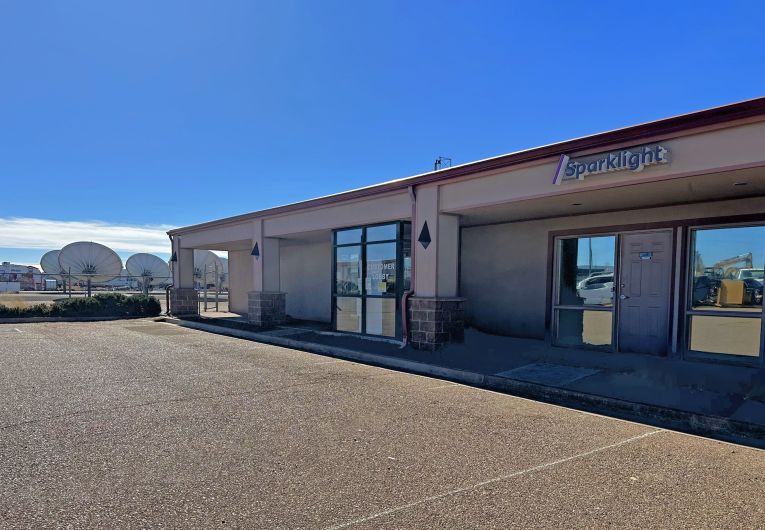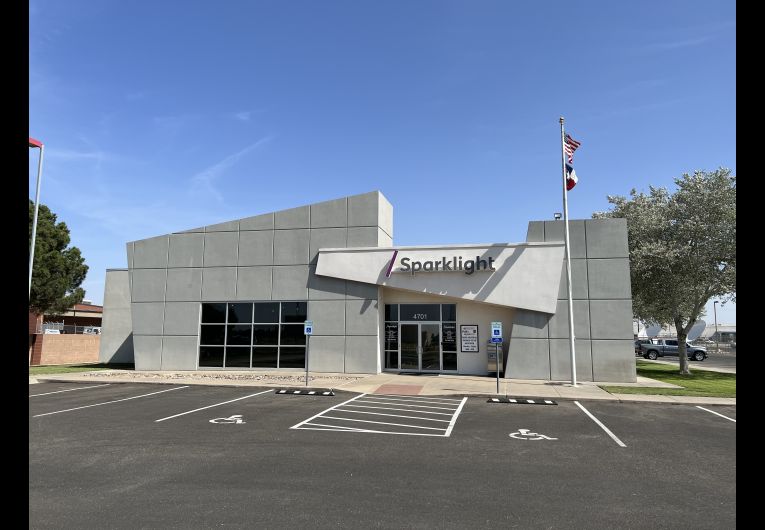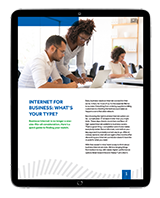
What is the Internet of Things (IoT) and could it Be Your Competitive Advantage?
The internet is a little like the moon in that it has a visible side that gives us funny memes and news feeds and an unseen side that supports the growing network of Wi-Fi-enabled devices we rely on every day without really thinking about it.
This latter version, the Internet of Things (IoT), might be the key to your business's success if appropriately leveraged. In this post, we cover how to go about doing so.
But First, a Comprehensive Definition
What is the Internet of Things (IoT)?
The Internet of Things (IoT) refers to a network of interconnected physical devices, vehicles, buildings, and other objects embedded with sensors, software, and network connectivity, that collect and exchange data.
These devices, often called ‘smart' or ‘connected' devices, can communicate with each other and individuals over the internet. You may already be using a few in your office!
IoT devices can range from simple sensors and actuators to complex systems with advanced functions. They can include everyday objects like appliances, thermostats, and wearable devices, as well as industrial equipment, infrastructure components, and even smart cities.
How Can Your Business Use IoT?
The Internet of Things (IoT) can offer numerous benefits to small businesses, enabling them to run more efficiently and effectively. Here are several ways a small business can leverage it:
Inventory Management
Use IoT-enabled sensors to monitor and track inventory levels in real time. These sensors can automatically trigger reordering when stock levels reach a predefined threshold, ensuring optimal inventory levels and preventing stockouts or excess inventory.
Asset Tracking
IoT devices can track and manage valuable assets, such as equipment, vehicles, or tools. IoT-enabled tracking systems can provide real-time location data, allowing businesses to optimize asset utilization, prevent loss or theft, and streamline maintenance schedules.
Energy Efficiency
Smart devices, such as thermostats, lighting systems, or power management systems, can be used to optimize energy consumption. They can automatically adjust settings based on occupancy or time schedules, saving energy and reducing utility costs.
Remote Monitoring and Maintenance
IoT sensors can remotely monitor and maintain equipment or machinery. Real-time data collection can help identify potential issues or maintenance needs before they result in costly breakdowns, reducing downtime and improving overall equipment efficiency.
Customer Insights
IoT-enabled devices, such as beacons or smart shelves, have the ability to collect data on customer behavior and preferences. This data can help businesses personalize marketing efforts, optimize product placement, and enhance the overall customer experience.
Supply Chain Optimization
Implementing IoT technology to monitor and track goods throughout the supply chain can give your business real-time visibility into shipment status, product condition, and other issues, improving efficiency and customer satisfaction.
Predictive Analytics
IoT data combined with advanced analytics can help optimize production processes, anticipate demand patterns, or identify potential maintenance needs, resulting in cost savings and improved operational efficiency.
Enhanced Security
Smart devices can enhance security measures, such as surveillance cameras, access control systems, or alarm systems. Integrating these devices with a central monitoring system provides real-time notifications, allowing for quick responses to potential security breaches.
Remote Work Enablement
With IoT devices, businesses can enable remote work and collaboration. Connected tools, video conferencing systems, and cloud-based platforms allow employees to work seamlessly from anywhere, increasing productivity and flexibility.
Customer Service and Support
IoT-enabled devices can facilitate proactive customer service and support. For example, connected devices can detect issues or send notifications when maintenance is required, allowing businesses to address customer concerns promptly and prevent potential problems.
Industries Successfully Using the IoT
Many businesses across various industries have successfully leveraged the Internet of Things (IoT) to enhance their operations and create new opportunities. Here are some examples:
Manufacturing
Manufacturing companies have leveraged IoT to optimize production processes, improve efficiency, and reduce costs.
Healthcare
IoT has revolutionized the healthcare industry by enabling remote patient monitoring, real-time health tracking, and improved patient care. Check out our Healthcare IoT Checklist to make sure you’re set-up for success.
Transportation and Logistics
Companies in the transportation and logistics sector have adopted IoT to optimize their supply chain, improve fleet management, and enhance overall operational efficiency.
Agriculture
IoT has transformed agriculture by enabling precision farming, efficient resource management, and improved crop yields.
Energy and Utilities
IoT is utilized in the energy and utilities sector to optimize energy consumption, monitor infrastructure, and enhance grid management.
Retail
Retailers use IoT to enhance the customer experience, optimize inventory management, and personalize marketing strategies.
Smart Cities
Municipalities are implementing IoT solutions to create smart cities with improved infrastructure, public services, and sustainability.
The Wi-Fi Powering IoT
Devices that leverage the IoT can only be as effective as the Wi-Fi network that
supports it. If you're considering maximizing your company's IoT capabilities,
talk to a Sparklight representative today who can assess readiness and help you strategize. Contact us here.
The trends, insights, and solutions you need to grow your business.
By signing up, you’re subscribing to our monthly email newsletter, The
Wire. You may unsubscribe at any time.
Your information stays safe with us. Learn more about our privacy
policy.











![[#MSP_NAME#] Logo](/themes/sparklight_business/images/transition-logos/migration-banner-logo-[#MSP_CD#].png)
